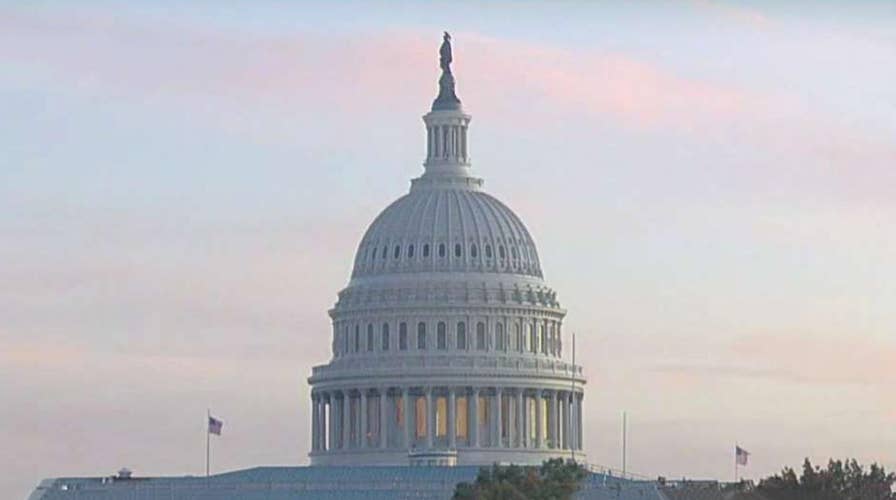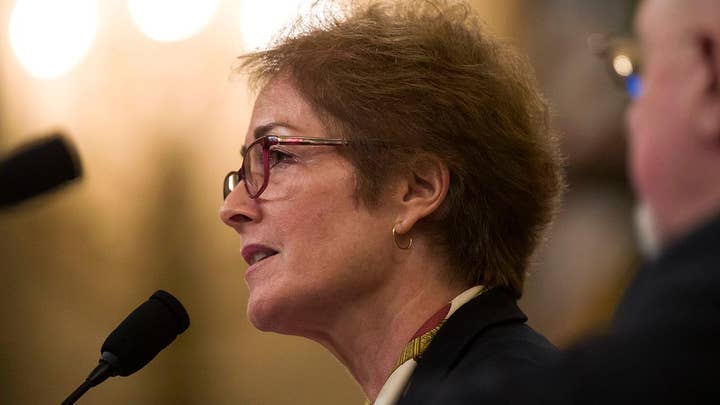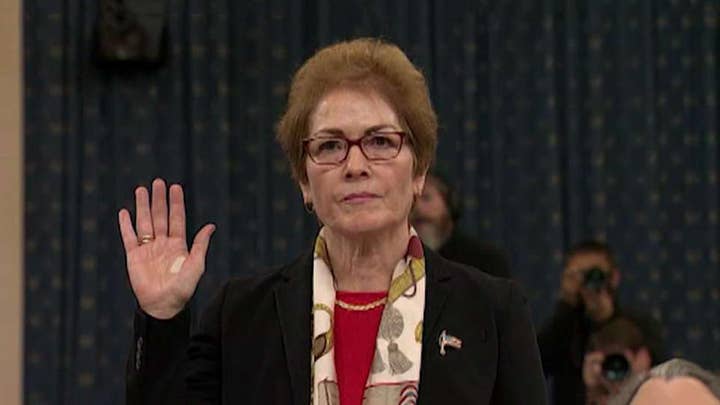House Intelligence Committee releases transcripts from interviews with Tim Morrison and Jennifer Williams
The two witnesses were on the phone call between Trump and the Ukrainian president; Chad Pergram has the latest.
An adviser to Vice President Mike Pence told House impeachment investigators this month that President Trump's request for Ukraine President Volodymyr Zelensky to open an investigation into former Vice President Joe Biden and his family "struck me as unusual and inappropriate" and "shed some light on possible other motivations behind a security assistance hold."
The three House committees overseeing the impeachment inquiry against Trump released hundreds of pages of closed-door testimony by Jennifer Williams, a special adviser to Pence on Europe and Russia, and Tim Morrison, the former senior director for European affairs at the National Security Council. Morrison was interviewed Oct. 31 and Williams was interviewed Nov. 7.
Both Williams and Morrison were listening in on the July 25 phone call, which was flagged by an intelligence community whistleblower and has become the center of the impeachment inquiry. House Democrats say that aid was withheld from Ukraine until its government launched investigations into Biden, his son Hunter and their dealings in the eastern European county -- particularly the younger Biden's work with Ukrainian natural gas company Burisma Holdings.
Investigators also met Saturday with Office of Management and Budget (OMB) official Mark Sandy, who was involved in key meetings about the nearly $400 million aid package Congress had approved for Ukraine.
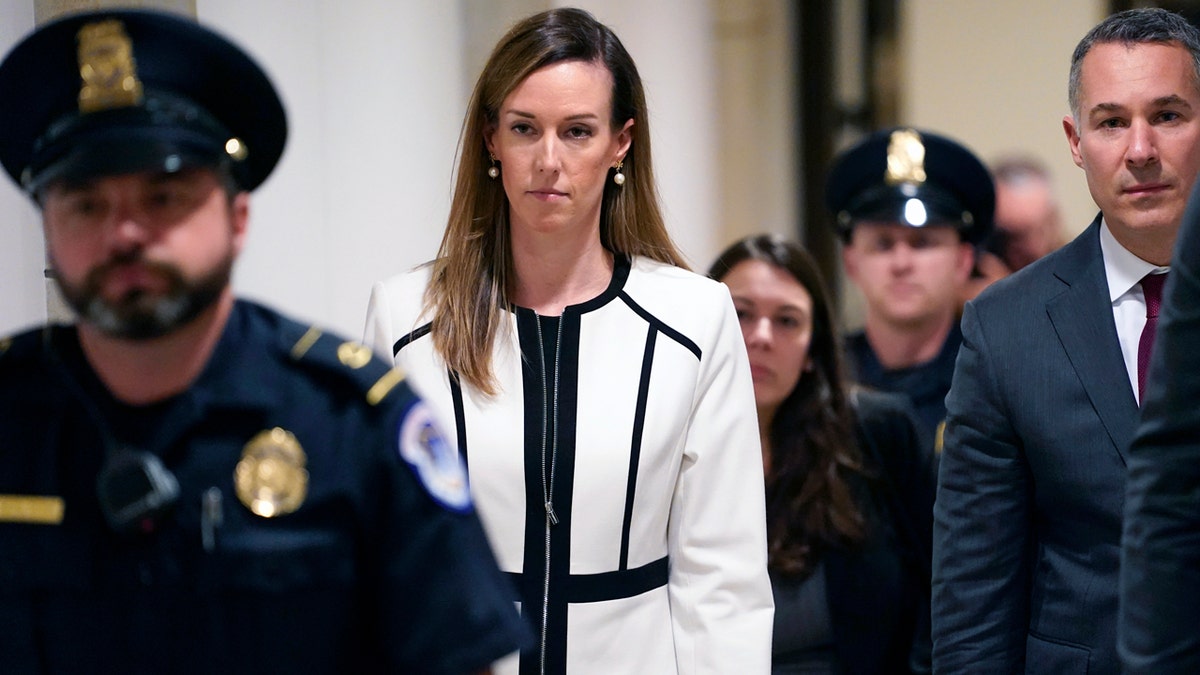
Jennifer Williams departs after her deposition Nov. 7. (AP Photo/J. Scott Applewhite)
Williams told lawmakers that the word "Burisma" appeared in her notes of the July 25 call, though it did not appear in the memorandum of the conversation released by the White House in September. The transcript indicates that Williams initially told lawmakers that Trump mentioned Burisma to Zelensky, but a letter from her attorney following the deposition states that Williams' "recollection had been incorrect" and Zelensky mentioned Burisma to Trump.
For his part, Morrison that he consulted NSC lawyers following the July 25 call because he was worried about details of the conversation being leaked to the media, according to transcripts of his testimony released Saturday.
In his testimony, Morrison said he asked NSC Legal Adviser John Eisenberg and Eisenberg's deputy, Michael Ellis, to review the July 25 call "because I was concerned about whether or not they would agree that it would be damaging ... if the call package, if the call mem-con [memorandum of conversation] or its contents leaked."
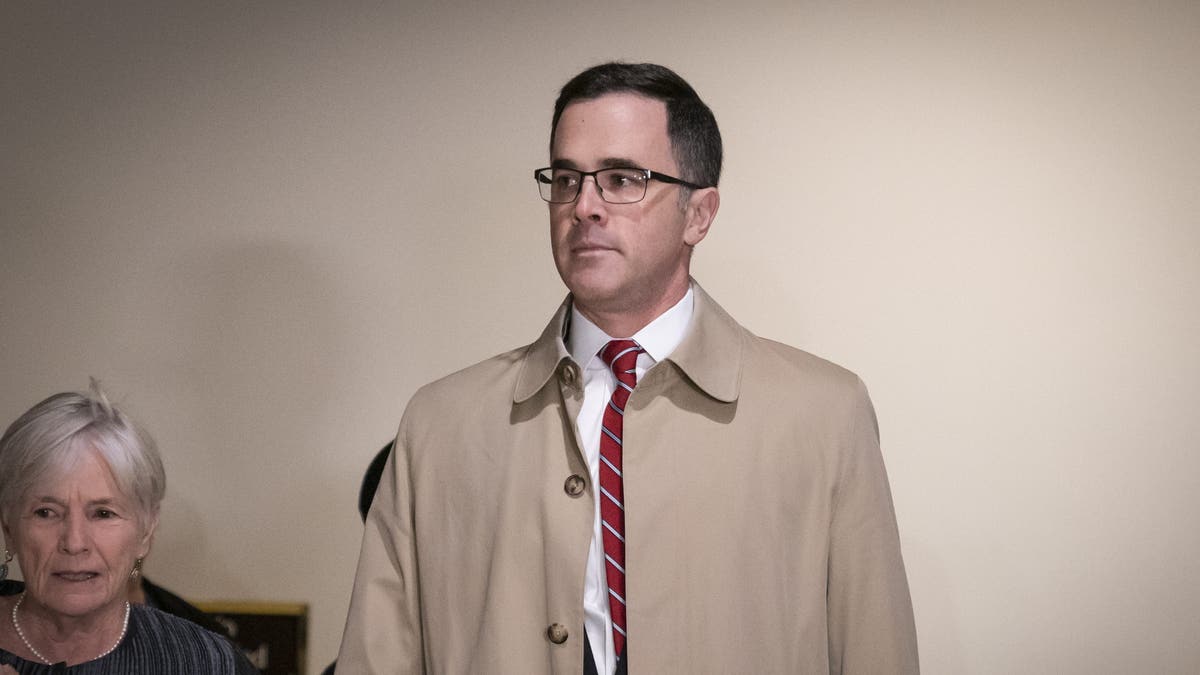
Tim Morrison arrives for his closed-door deposition Oct. 31. (AP Photo/J. Scott Applewhite)
During the call itself, Morrison said he was concerned by how "obsequious" Zelensky sounded toward Trump and added that the conversation "was not the full-throated endorsement of the Ukraine reform agenda that I was hoping to hear."
Morrison added that he and Eisenberg agreed that access to the call should be restricted, but then claimed Eisbenberg later told him that he did not intend for the call summary to be placed on a highly classified server. According to Morrison, Eisenberg's staff apparently put it there by mistake and nothing in the call's contents warranted placement on the classified server.
Morrison also told House investigators that Fiona Hill, a top NSC expert on Russia, had described U.S. Ambassador to the European Union Gordon Sondland "as a problem" who "believed he had the mandate to get involved [in Ukraine policy] based on his relationship with" Trump, even though Ukraine is not a member of the EU.
"We [Morrison and Hill] both discussed that Ukraine was not in the EU, which led to the follow-on question of, why is he involved in Ukraine?" said Morrison of Sondland, who is expected to testify publicly on Wednesday. Morrison, who is set to publicly testify Tuesday, added that he became concerned while listening to the July 25 phone call that Hill's fear that Sondland was involved in a "parallel process" of making Ukraine policy was true.
Weeks after the July 25 call, on Sept. 1, Sondland held a conversation with a top Zelensky aide, Andriy Yermak, on the sidelines of a summit between Pence and Zelensky in Warsaw.
Morrison said he witnessed the exchange and that afterward Sondland bounded across the room to tell him what was said. Sondland told him that "what could help them move the aid was if the prosecutor general would go to the mike and announce that he was opening the Burisma investigation," Morrison testified.
"My concern was what Gordon was proposing about getting the Ukrainians pulled into our politics," Morrison said. He added: "It was the first time something like this had been injected as a condition on the release of the assistance."
A few days later, on Sept. 7, Morrison told investigators that Sondland "related that both -- the president [Trump] said there was not a quid pro quo, but he [Trump] further stated that President Zelensky should want to go to the microphone and announce personally -- so it wouldn't be enough fon the prosecutor general, he wanted to announce personally, Zelensky personally, that he would open the investigations."
While some, including Trump himself, have begun to question Sondland's knowledge of events, Morrison said the ambassador "related to me he was acting -- he was discussing these matters with the President."
As Sondland, Giuliani and others tried to persuade Zelensky to launch the investigations Trump wanted of his Democratic rivals, Morrison said he "tried to stay away."
"The testimony released today shows that President Trump’s July 25 phone call with Ukrainian President Zelensky immediately set off alarm bells throughout the White House," Intelligence Committee Chair Adam Schiff, D-Calif., Oversight Committee Acting Chair Carolyn Maloney, D-N.Y., and Foreign Affairs Committee Chair Eliot Engel said in a joint statement. "Both witnesses provided the Committees with first-hand accounts after personally listening to the call in the White House Situation Room ... We look forward to the public testimony of both officials."
CLICK HERE TO GET THE FOX NEWS APP
A senior administration official, meanwhile, lashed out at House Democrats in response to reports that they had changed their terminology to describe the allegations against Trump in response to polling data.
"The only reaction coming from House Democrats, who continue to use PR firms and DCCC polling data to push their conspiracy theories as facts, seems to be that of disappointment. Everything so far is about the temperature of the room, and that the testimony was 'technical' and didn’t get them what they wanted," the official said. "It’s looking like Democrats are now desperate to sell any narrative that’ll justify what most Americans recognize has been an extreme abuse of Congress’ powers. At this point, their fishing expedition would probably even find George Washington guilty of treason."
Fox News' Chad Pergram, Jodie Curtis, David Sweet, Lucas Tomlinson and Caroline McKee contributed to this report.
